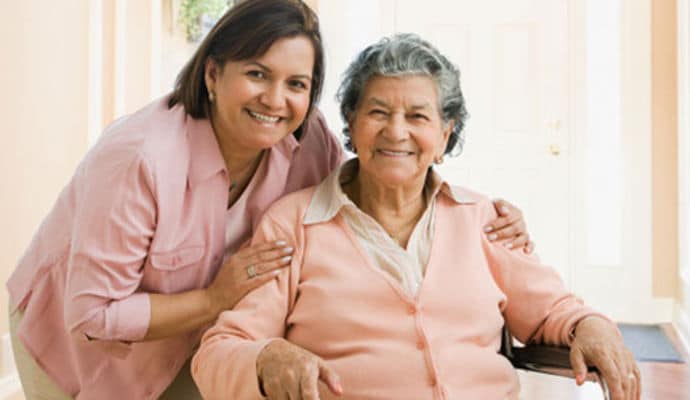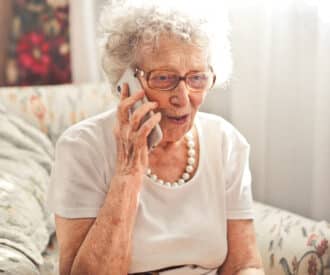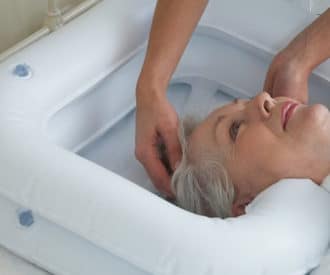
There are many people involved in your older adult’s care: doctors, nurses, physical therapists, in-home caregivers, assisted living staff, family, friends, and others. As their primary caregiver and health advocate, it’s important to have a complete picture of their current health and any concerns. To do that, it’s necessary to get regular updates from the care team. Based on her experience caring for her mom, Suzanne Blankenship shares advice on how to check in with care team members.
Don’t have all the players gathered for a sit-down care conference? Well, take your show on the road. Go visit your older adult’s care providers and get an update from them on how your elder is doing, what their needs are, and what goals the provider has for the near term.
Last week, I blogged about how to have a productive care conference (CC). I gave you a list of the players who would attend, what topics it might cover and how to advocate for your elder productively during the CC.
Well, sometimes, you can’t get the players together for a meeting. Some providers are not located near where your elder receives care. Some providers are on contract with your elder’s facility or with Medicare and the players change often. At times, it may be your schedule or location that prevents an in-person meeting or CC.
In those cases, I would recommend a Roving Care Conference (RCC). Here are some ideas for a successful RCC.
If your older adult lives at home…
- If they have a home health aide, drop by at the end of their assigned shift and walk them out to their vehicle. Ask them for their observations regarding your elder’s health or cognition, specifically if they have seen any drastic changes. Ask if you can do anything to help them provide care.
- Checking in with a neighbor or friend who lives nearby gives you an opportunity to hear their observations and get any feedback about additional care needed or issues they might have observed.
If your older adult lives in a care community…
- If your elder lives in a facility or senior residence, make an appointment with the nursing staff member responsible for your elder’s care. Before the meeting, make a list of questions and/or issues that you’d like to discuss. A couple of hints to make the meeting productive – say something positive, ask for their observations, listen carefully, take notes and find out if there is anything that needs to be addressed that you can take care of.
- If there is a room where physical therapy is given, drop by and see if you can make an appointment to see your older adult’s therapist(s) or if you can attend their next therapy session. If they have a moment after the session, you could check in on your elder’s progress.
- Drop by the kitchen of the facility where your elder lives and check with the dining staff. Ask them if your elder is coming to meals. Does your elder want anything in particular that you could help obtain? Ask if the kitchen staff is able to accommodate special requests.
- Check in with the activities director at your elder’s residence or at the local senior center. Find out what activities your older adult enjoys as well as what kinds of activities are offered. If there is something your elder might like and/or is reluctant to join, ask the director for their help in engaging your elder.
- If you have special instructions for an upcoming event or medical appointment, stop by and visit with the person who handles transportation at the community.
- It is always a good idea to stop and chat with the front desk receptionist, the housekeeping staff, the director of the facility and anyone else who has an impact on your elder’s care. If you should need their help in the future, they’ll know who you are.
- An RCC is always more fruitful if you take along goodies. Share some chocolate kisses or some mini-muffins. Take a bag of oranges to the nurses’ station. It doesn’t have to be big, it just has to say “I understand your importance in my elder’s care and I thank you for the work you do.”
Check in via phone or email
If you can’t check in with any of these folks in person, engage with them on email or via phone. When my mom had some physical therapy ordered for a short time period, I was not able to visit with the therapists directly.
So when the coordinator called me to set up the visits, I requested a phone call once per week from the nurse or head therapist. The phone calls gave me an opportunity to check on Mom’s progress versus her goals and to find out if I needed to encourage her in any way.
In addition, a doctor or dentist’s office can fax, email, or snail mail a visit summary if they have a copy of your medical power of attorney. That can help you stay engaged with your elder’s medical care. Hospice nurses can give you updates via phone or email as well.
RCCs play an important role in the care of your elder and in your own sanity in two ways:
- They give you a snapshot into how your elder’s care is going, what changes might be occurring that you need to attend to and keep you involved in a productive way.
- They show the care providers that you are interested, you are paying attention to the care your elders are receiving and that you are appreciative of the good care they provide – they’ll keep providing good care if they know those three things.
If your elder is hesitant to have you involved in their care for any reason, RCCs allow to you be aware of their care without being formally involved. Wink, wink.
All of this adds up to either preventing the next emergency or lessening the impact and severity of the next emergency. Because we all know eldercare is punctuated by emergencies. Staying ahead of the curve saves time, money and marbles.
Recommended for you:
- Why Seniors Need You To Be Their Health Advocate
- 7 Tips for Helping Seniors at the Doctor’s: Being a Health Advocate
- 3 Tips to Help You Choose Between Assisted Living vs In Home Care
Guest contributor: Suzanne Blankenship guides you through the journey of eldercare with practical tips, proven tools and a spoonful of laughter – all in a book you can read in one night. In her second decade of eldercare, Suzanne brings her experience to audiences across the country as a speaker, eldercare expert and author of How To Take Care of Old People Without Losing Your Marbles. Follow Suzanne’s blog at TheEldercareNavigator.com, on Facebook, or on Twitter.
Image: King County Caregiver Support Network
This article wasn’t sponsored and doesn’t contain affiliate links. For more information, see How We Make Money.




